The views expressed in our content reflect individual perspectives and do not represent the authoritative views of the Baha'i Faith.
“The inordinate disparity between rich and poor, a source of acute suffering, keeps the world in a state of instability, virtually on the brink of war. Few societies have dealt effectively with this situation,” wrote the Universal House of Justice, the globally-elected governing council of the Baha’i Faith, in 1985.
“The solution calls for the combined application of spiritual, moral and practical approaches. A fresh look at the problem is required, entailing consultation with experts from a wide spectrum of disciplines, devoid of economic and ideological polemics, and involving the people directly affected in the decisions that must urgently be made. It is an issue that is bound up not only with the necessity for eliminating extremes of wealth and poverty but also with those spiritual verities the understanding of which can produce a new universal attitude.”
RELATED: Reducing Poverty Amongst Marginalized Women and Communities
That’s why I contacted Dr. Augusto Lopez-Claros, a Baha’i author, lecturer, and international development economist with over 30 years of experience. I sought his insights to provide us with a fresh perspective and a deeper understanding of the relationship between extreme wealth and poverty, as well as the significance of narrowing this wealth gap for promoting equality and ensuring the stability of nations.
Radiance Talley: Thank you so much, Augusto, for taking time out of your busy schedule to answer my questions. Since the elimination of the extremes of wealth and poverty is one of the main principles of the Baha’i Faith, can you define extreme wealth and extreme poverty?
Dr. Augusto Lopez-Claros: The currently accepted definition of extreme poverty is the one used by the World Bank. Someone is classified as “extremely poor” if his/her daily income is under $2.15. According to this definition today we have close to 700 million extremely poor people in the world, most of them concentrated in Sub-Saharan Africa and India. This figure used to be much higher — close to 2 billion people in 1990, but it remains shamefully high.
Extreme poverty is often characterized by malnutrition, lack of access to essential infrastructures such as electricity and clean water and basic health services. The United Nations Sustainable Development Goal Number 1 (“End poverty in all its forms everywhere”) calls for the elimination of extreme poverty by 2030 but there is consensus that this will not happen; this laudable goal is now out of reach.
Not surprisingly, COVID-19 in 2020–21 and the war in Ukraine starting last year have been major setbacks for extreme poverty, as a result of the associated economic disruptions. The World Bank estimates that somewhere between 70 to 100 million people will have fallen below the extreme poverty line in 2020-2022 because of the effects of the pandemic and the war and the job losses and price hikes they have brought about.
Poverty is not only low-income; it is often accompanied by psychological anguish and stress and is sometimes associated with substance abuse, domestic violence and hopelessness. Samuel Johnson (1709–1784) expressed this succinctly when he wrote, “Poverty is a great enemy of human happiness; it certainly destroys liberty, and it makes some virtues impracticable, and others extremely difficult.” I am therefore not surprised that Abdu’l-Baha refers to extreme poverty as being “degrading” and “demoralizing.”
We do not have a technical definition for extreme wealth. Instead, what we have is a large collection of depressing statistics that try to convey the extent to which wealth is concentrated at the top. A 2020 United Nations study revealed that “the average income of people living in North America is 16 times higher than that of people in Sub-Saharan Africa.”
Today, the richest 10 percent of the world’s population receives 52 percent of the world’s income, while the poorest 50 percent receives 8.5 percent. In 2018, the world’s 26 richest people held the wealth equivalent to 3.8 billion of the world’s poorest people or roughly half of the world’s population. I could cite more such appalling numbers, all highlighting just how extreme the gap has become between the very poor and the very rich.
Radiance: What is the relationship between extreme wealth and extreme poverty? How do extreme income disparities create inequality and affect the stability of nations?
Augusto: Extreme income disparities contribute to political and social instability — this is a well-established empirical fact. When large segments of the population feel that the rewards of the economic system are not equitably distributed and that they are being left behind they feel not only disillusioned but are then quite willing to support opportunist politicians and demagogues who will use their resentment for personal political or material gain.
With greater inequality and the resulting instability, governments are less able to deliver good policies and to raise enough revenue to invest in education, in public health and in other areas which will improve the condition of vulnerable groups within the population — in many parts of the world this means children, women, retirees.
A recent study by some World Bank economists found that: “More unequal societies tend to be politically unstable… impoverished people are likely to demand radical change, increasing the likelihood of mass violence or illegal seizure of power… Social unrest can disrupt productive activities. Such instability can also increase uncertainty. Furthermore, countries with higher inequality may be characterized by higher ethnic tensions and social polarization. This in turn decreases the security of property and contract rights,” all of which confirms Abdu’l-Baha’s statement that, left unattended, the extremes of wealth and poverty would undermine the very foundations of our societies.
Income disparities between countries also often spill over into strong incentives for migratory flows, as people seek new opportunities in more prosperous locations, offering greater opportunities for growth. It is not a coincidence that the countries with the lowest levels of inequality in the world are also countries which have largely eliminated extreme poverty. Alternatively, poverty is often found in highly inequitable societies with high levels of corruption. Indeed, corruption and gender discrimination are two other features that contribute to widening the gap between the poor and the wealthy.
Radiance: In some of the work you have done, you discussed how the central figures of the Baha’i Faith were deeply concerned about income inequality and the social conditions of people living in poverty and highlighted, in particular, Abdu’l-Baha’s references to this subject during his travels in the United States in 1912. Can you elaborate?
Augusto: Abdu’l-Baha was a keen observer of the economic, social, and political surroundings and saw clearly that life in the United States at the turn of the century, for the vast majority of Americans, was extremely difficult. The average workweek consisted of twelve-hour workdays, six days a week.
Coal miners were dying in large numbers due to accidents and various environmental hazards; child labour was rampant (in the millions) and the few states that had some form of restrictions enforced them poorly. There was no income tax, no social security, no unemployment insurance. These economic and social innovations came later, some during the administration of President Franklin D. Roosevelt in the 1930s. Access to clean water in rural areas was limited and most Americans did not have access to reliable heating in the winter. The incidence of some diseases, such as tuberculosis, was sky-high by today’s standards, as were levels of infant mortality.
Conditions outside the United States, particularly in Africa, South Asia, and Latin America were even more appalling. In 1918–19, some 17 million people in India — 5.5 percent of the Indian population — perished as a result of the Spanish flu, compared to 675,000 deaths in the United States, 0.65 percent of the total US population, highlighting dire living conditions, including massive poverty in countries in the developing world.
It is not surprising that, in his speeches, Abdu’l-Baha would refer to the harshness of life for vast segments of the world’s population and the need for substantial readjustments in the economic order, as he noted to an audience in New Jersey on 19 May 1912, “the poor are everywhere in the state of abject need.”
Radiance: Thank you, Augusto, for highlighting the urgency of alleviating the suffering of people living in poverty. If you’d like to read about the solutions that the Baha’i Faith offers to mitigate income inequality, read part two of this interview.


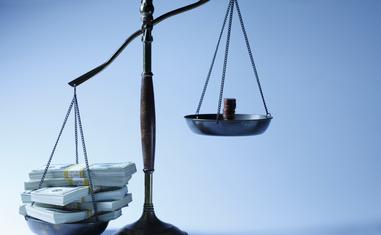

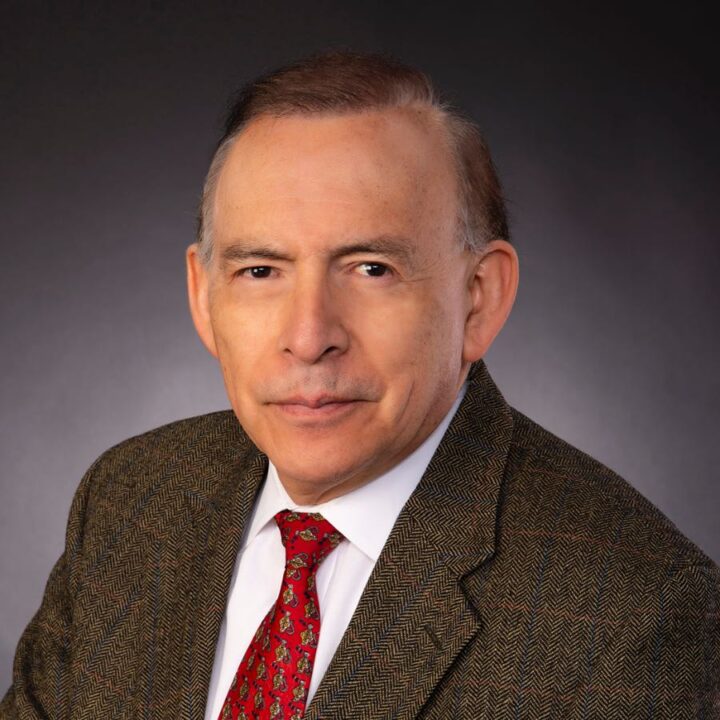

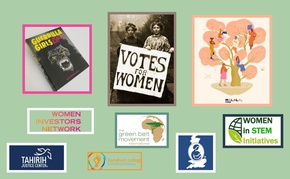
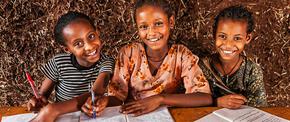
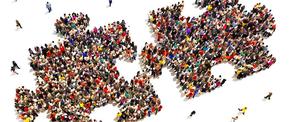









Comments
Sign in or create an account
Continue with Facebookor